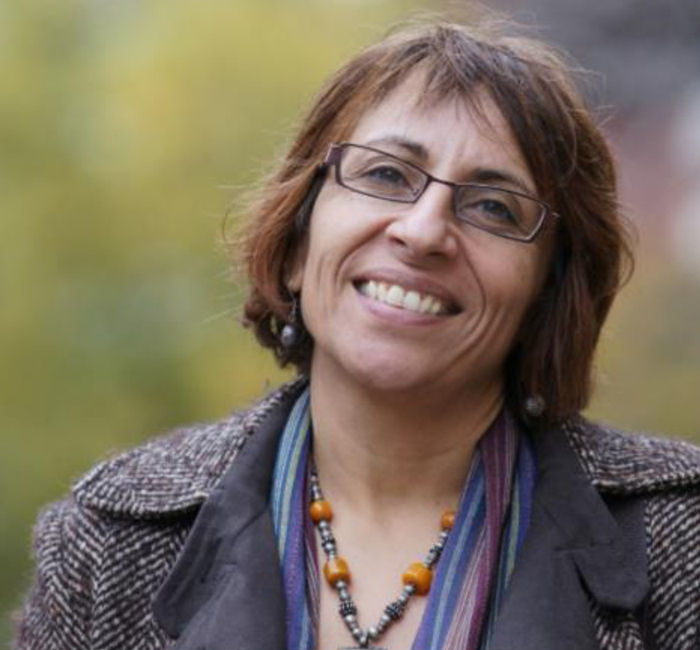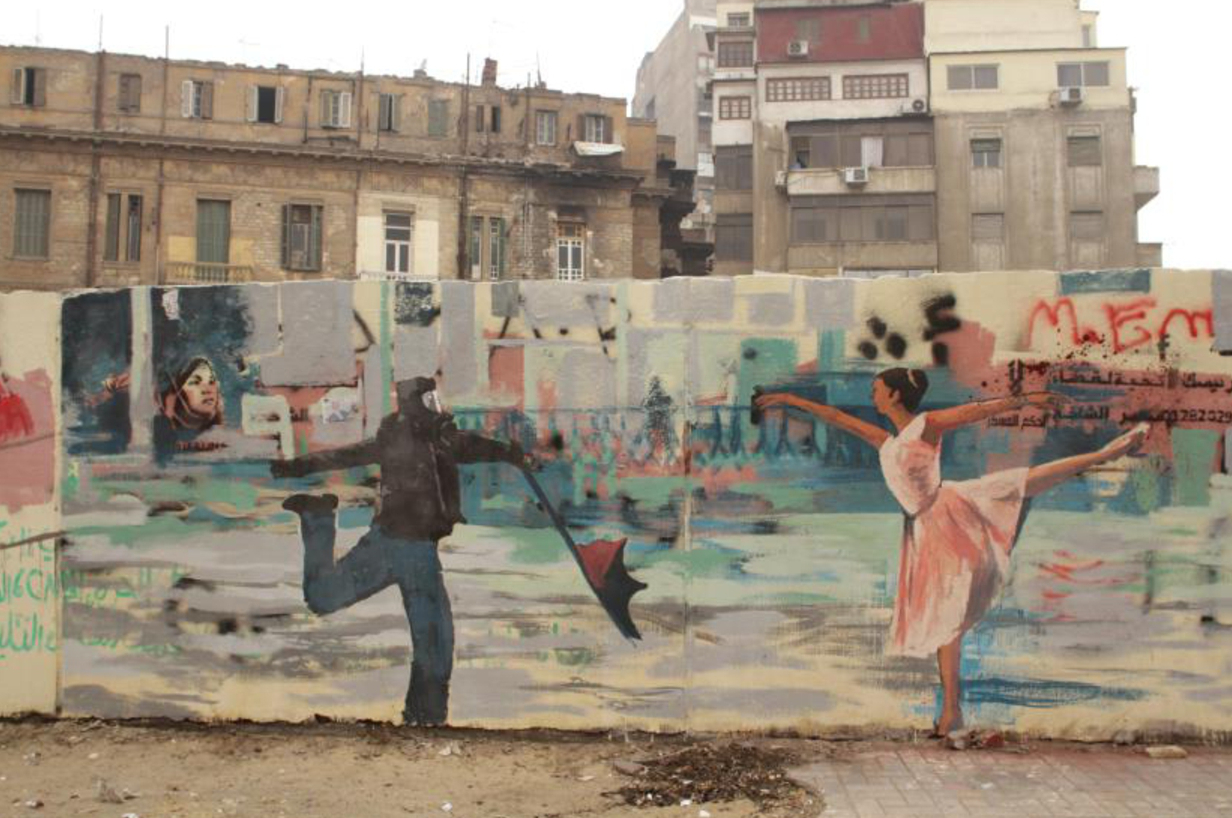Subversiver Frühling? Das unabhängige arabische Filmschaffen und seine Revolution(en)
Das Projekt befasst sich mit der Vorgeschichte, den jüngsten Entwicklungen des nicht-fiktionalen arabischen Filmschaffens, bzw. des Experimental- und Dokumentarfilms vor und nach der digitalen Wende, ebenso wie mit den möglichen Wechselwirkungen zwischen alternativem, innovativem Kunstschaffen und dem momentanen gesellschaftspolitischen Wandel in der arabischen Welt. Etwas allgemeiner formuliert, geht es um die Frage nach den Möglichkeiten und Herausforderungen politischer Dissidenz in der Region und deren Verhältnis zum Begriff künstlerischer Subversion. Dabei müssen umfassendere Wechselwirkungen zwischen Gesellschaft und audio-visueller Kunst, sowie – etwas konkreter – künstlerische Formen, in denen sich revolutionäre und umstürzlerische Ideen in audiovisuellen Praktiken und deren Rezeption niederschlagen, ermittelt werden. Dies wird nicht ohne eine Berücksichtigung internationaler politischer und ökonomischer Hegemonien und deren Auswirkung auf mikrokosmischer Ebene, (zu der die europäische Förderungspolitik, u.a. das Euromed-Audiovisuell Programm maßgeblich zählt) möglich sein. Demzufolge wird vor dem Hintergrund der allzu oft hemmenden strukturellen Rahmenbedingungen, wie Ausbildung, Finanzierung, Vertrieb sowie direkter und indirekter Zensur auch das Spannungsverhältnis zwischen nationalem und transnationalem Kulturbetrieb und dessen Institutionen (Filmförderungen, Festivals, Neue Medien) zu einem weiteren Gegenstand der Untersuchung werden.
 Viola Shafik, Dr. phil., ist freischaffende Filmemacherin und Filmwissenschaftlerin. Sie veröffentlichte u.a. zwei Monographien: Arab Cinema. History and Cultural Identity, AUC-Press, Cairo, 1998 und Popular Egyptian Cinema. Gender, Class and Nation, AUC-Press, 2007. Sie unterrichtete Film an der American University in Cairo, der Universität Zürich und der Humboldt-Universität. Sie arbeitet(e) jahrelang als künstlerische Beraterin für al-Rawi Screenwriters Lab, La Biennale di Venezia, Dubai Film Connection und Doha Film Institute. Seit 2007 ist sie im Auswahlkomitee des World Cinema Funds der Berlinale. 2011-2013 war sie Studienleiterin des Documentary Campus MENA Programms zum Training arabischer DokumentarfilmemacherInnen. Sie selbst drehte mehrere Dokumentarfilme, darunter Die Reise der Königin Teje (2003, arte), Ali im Paradies/My Name is not Ali (2011, Vertrieb MEC-Film, Goethe-Institut) und Arij - Scent of Revolution (Weltpremiere auf der Berlinale 2014).
Viola Shafik, Dr. phil., ist freischaffende Filmemacherin und Filmwissenschaftlerin. Sie veröffentlichte u.a. zwei Monographien: Arab Cinema. History and Cultural Identity, AUC-Press, Cairo, 1998 und Popular Egyptian Cinema. Gender, Class and Nation, AUC-Press, 2007. Sie unterrichtete Film an der American University in Cairo, der Universität Zürich und der Humboldt-Universität. Sie arbeitet(e) jahrelang als künstlerische Beraterin für al-Rawi Screenwriters Lab, La Biennale di Venezia, Dubai Film Connection und Doha Film Institute. Seit 2007 ist sie im Auswahlkomitee des World Cinema Funds der Berlinale. 2011-2013 war sie Studienleiterin des Documentary Campus MENA Programms zum Training arabischer DokumentarfilmemacherInnen. Sie selbst drehte mehrere Dokumentarfilme, darunter Die Reise der Königin Teje (2003, arte), Ali im Paradies/My Name is not Ali (2011, Vertrieb MEC-Film, Goethe-Institut) und Arij - Scent of Revolution (Weltpremiere auf der Berlinale 2014).
Spring of Subversion? Independent Arab Filmmaking and its Revolution(s)
The social and political earthquakes that have seized the Arab World in the eve and aftermath of the so-called Arab Spring have certainly worked as a catalyst for artistic dissidence and have found an expression in the recent documentary and avant-garde filmmaking of the region. Yet, not all of the new developments can be interpreted in the light of the Arab rebellion. Since the turn of the millennium the regional media- and film-scape had started changing already. The so-called digital turn which began during the 1990s with the introduction of the new media and digital technology, the end of the Lebanese Civil war, as well as the changed media and investment politics of and in the Gulf States have become some of the most decisive factors in that respect. All together they have led to strongly amended conditions for production and distribution in the commercial as well as in in the non-commercial field. The proposed research project is supposed to enhance our knowledge about the history and the most recent developments in the field on non-fictional Arab filmmaking. Its main interest is to assess the relationship between alternative and innovative filmmaking and the surrounding social and political changes. It wants to sketch out the challenges and possibilities of political dissidence in correlation with the notion of artistic subversion. More concretely, it will investigate and reflect on the sources of inspiration and the reactions of filmmakers and artists and their works on and to pivotal social and political events and vice versa. With this, the study will pose the question of interaction, that is, how and to which extent revolution(s) and their definitions crystallize in audio-visual practices and their reception. On a larger scope and in view of the restraining structural framing conditions, namely lack of competent training, problems of financing, distribution as well as direct and indirect censorship it seems also necessary to examine the relationship between national and transnational culture and its institutions, such as film funds, festivals and New Media outlets and to juxtapose them to form and content of the works. This will allow to shed light on the shifts in regional and trans-regional economic, social and political power relations of the last years.
DFG Programme Research Grants
International Connection Algeria, Egypt, Lebanon, Morocco, Palestine, Syrian Arab Republic, Tunisia
Cooperation partner: Professor Dr. Kerstin Pinther


